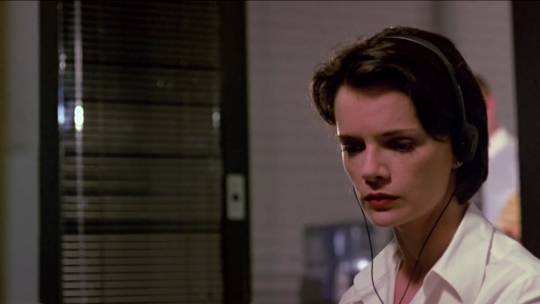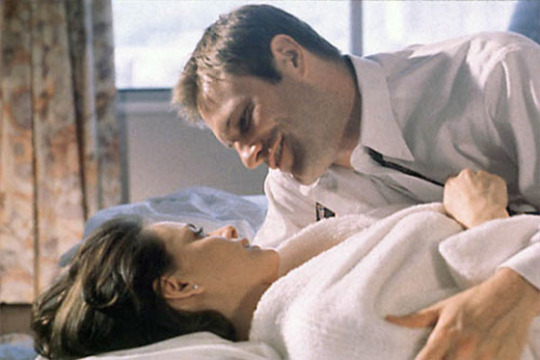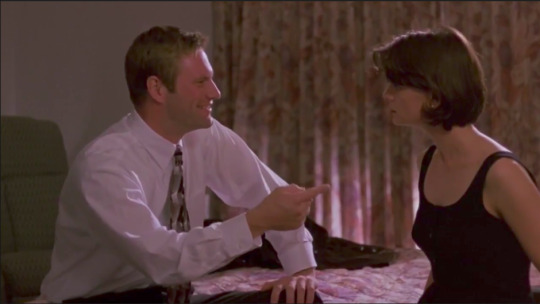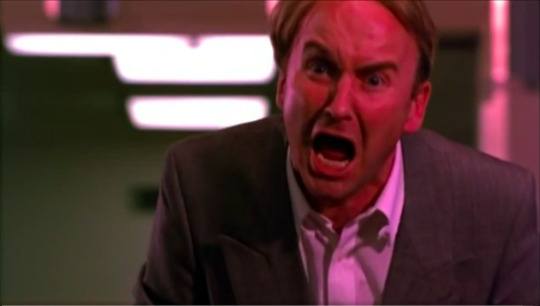#want to use. its a mountain now but it can be a footnote if u will. it's small 'i know im sorry im working on making it better' but it can
Text
It's so WEIRD that during the day I am like. Dead and lazy and absolutely do NOT want to move. And the minute it's five and it's dark outside, hoo boy do I not only have a to do list BUT ALSO the motivation and the energy to do it all
#personal#this is absolutely bollocks. im thinking. maybe i am just NOT. a day person.#i knew that years ago but i forgot in-between cos living w ur parents will do that to u#on that note. doesn't it sort of make u angry and relieved at the same time. that#ur parents are just people. humans. faulty. lovely. i wish they didn't hold themselves to such high standards and claim to be authority on#everything. i wish they went easy on themselves. so maybe they can be softer with themselves and in turn softer w me#and i don't want them to be softer to me. just maybe see me as human yknow? that not every mistake just another proof that i am a failure#on that note. isn't it SO GOOD. almost wonderful that we give meaning to things. yes yes its v hard to let go. Ive had to sit with that toO#BUT once you've mourned and grieved and sat in your misery. you can decide how much meaning it will have in your life. how much of it do u#want to use. its a mountain now but it can be a footnote if u will. it's small 'i know im sorry im working on making it better' but it can#be the center of everything. if u want it. the world is absolutely yours if u want it. AND ANOTHER EXCITING PART?#u get as many chances at it as u want. as u like.#its always been for u.#not to jinx anything skfkskkdksks i dont want the motivation to go pls lord
2 notes
·
View notes
Text
THE FALSE NEGATIVES

In The Company Of Men (1997) opens in an airport where two middle management guys have just arrived: a bespectacled seborrheic named Howard, and an ex-jock good ol’ boy named...Chad.
Howard walks out of the bathroom. He’s been hit, by a woman, just for asking the time—like, Mountain or Central. “Wait, wait. You're telling me about some sort of unprovoked assault here?” Chad says, “Did she give you the time at least?”
Howard doesn’t laugh. He doesn’t even seem to recognize it as a joke. And therein lies the problem, for him and everyone else.
The two men are in town a few weeks to work at a branch office. They exchange complaints. This place blows. The job sucks. Coworkers are vultures. Can’t trust anyone. Howard just got dumped by his fiancée. Chad says he just got dumped too.
CHAD: I'm standing there, no note...not a “thanks for four years of a roof over my bleached-blonde head”...nothing. You know? And it comes to me...the truth. I do not give a shit, not about anybody. A family member, a job, none of it. I couldn't care less.
HOWARD: Geez.
CHAD: Don't get me wrong. We're pals.
HOWARD: Same college.
CHAD: Exactly, and that means something. But these other folks...You know, jump on while the going's good? No, that will not do.
“Circle the date on this one, big guy,” Chad says, “We keep playing along with this 'pick up the check,' 'can't a girl change her mind' crap...and we can't even tell a joke in the workplace? There's going to be hell to pay down the line, no doubt about it.”
They move to the hotel bar.
youtube
CHAD: I don't want to shock you. It's just a thought. It's the same crap we played in school, only better, because we get a payback on this messy relationship shit we're dealing with.
HOWARD: No, right, it's funny, it is. it's just...way out there.
CHAD: I think it would be refreshing, I really do...and very therapeutic coming off the women we just have.
HOWARD: Well, just for instance, who would it be?
CHAD: No idea. But she’s out there, I know it. Just waiting for us to find her.
Let’s start here.
They say guilt is omniscient; that doesn’t mean you can’t throw sand in its eyes. Unlike shame, guilt is universal, at some level everyone knows that violating the NAP makes you a dick. But suppose you like, really want to. How do you get from Crime and Punishment to Crimes and Misdemeanors?
The above scene is demonstrative. First, replace the human object with an idea. Hurting an innocent woman is obviously evil—plus, why would you do that? Women are soft, thoughtful, have nice voices, etc. But hurting “women” in general? “Women,” who smile right past you and say “that’s so funny!” instead of laughing and sing along to vapid breakup songs like they could ever know the pain of a sensitive incel? God knows “they” want to hurt “men.”
Second, remove the subject: you aren’t going to do anything. A passive process, inevitable given the laws of thermodynamics, is going to occur. You remember that one scene in Glengarry Glen Ross? “Somebody should stand up and strike back. Somebody should do something to them.” Deus vult.
But that explanation doesn’t do justice to Chad’s cunning. He alternates between 1) “big guy”-ing Howard re: office politics and romantic troubles, and 2) brutal, frequent, almost compulsive misogyny. These are twin strategies in the same campaign. When Chad says, “some corn-fed bitch who'd mess her pants if you sharpen a pencil for her,” Howard gives a single snort of laughter. I know that one. It’s a social laugh, slave morality coming straight from the spinal cord, brain playing catch-up, “oh, it’s funny because it was a joke.” Like all the nice construction workers asking ladies to smile, Chad wants to be a friend. It would be rude not to laugh at the joke of a friend. But when your ego endorses a perspective your superego rejects, you build up a debt of guilt. The heavier your debt, the more you have to borrow from the abstraction of ideal over real. The more you suspend judgment, the more you have to rely on the judgment of others. The more crimes you share with an accomplice, the deeper you enmesh yourself in conspiracy. So a few hours later and a little drunk:
HOWARD: What'd she say?
CHAD: "I don't trust anything that bleeds for a week and doesn't die."
(Both laugh)
CHAD: So you in?
HOWARD: Aw, shit man...yeah, I’m in.
CHAD: Alright, let’s do it. Let’s hurt somebody.
Somebody shows up the next day.

The object is a deaf woman named Christine. Reads lips, self-conscious about this so wears headphones so coworkers will have to attract her attention. A copy-editor or something, 90 words per minute. Brunette and pale, short hair, slender neck, narrow frame, Améliesexual, Forever 21.
When a male coworker informs Chad of her disability, Chad does an imitation “dolphin voice” and gets a big laugh. Then he goes and introduces himself.
CHAD: You're new here, aren't you? Don't be embarrassed. We're all new sometime, right? (Pause) That's a lovely blouse.
“A, E, I, O, U and sometimes Y is like the Holy Grail to this poor wretch,” Chad tells Howard. Howard, sitting down to urinate, gives an ambiguous response. Chad: “You're not pussing out on this, are you, Howie?”
HOWARD: All I mean is, I think everything's a business, whatever you go into. Your typing there or my opportunity directing this project. Doesn't matter. Every walk of life's an industry...from child care right on up.
HOWARD: So, on a personal level, that's what I'm doing here. I was walking by, saw you, figured, "What the hell," you know? You probably have a boyfriend, but you gotta take your chance, right? And who knows? It might turn out to be mutually advantageous. So, that's really just a long-winded way of saying...I'd like to go out sometime. Maybe get a drink? My name's Howard, by the way. I'm free this weekend.
Act III shows the two Lotharios in parallel. Howard’s dating sim begins with a motorized tour cart ride at the zoo. Howard arrives late, blames this on having to “ream out” some employees, has to define “ream,” clarifies that, no, you don’t have to feel bad for them, like, it was no big deal. Then he backtracks and admits he was lying—none of that happened, he ran back to the hotel to change his shirt. “I get so used to saying what I think people want to hear...I forget they might just want the truth sometimes,” Howard says. “It’s all right,” Christine says, “Just remember: I can't hear you when you're lying.”
Cut to:
CHAD: I have to face this. My job ends here in a few weeks, and...I want you to know that whatever you do is all right with me. I don't care about your dating other guys...and if we're apart for a while or...
CHAD: Well, I just want you to know that, whatever happens, I trust you. Okay? Oh, boy, this is really hard. I like you. There, I said it. It's out. I'll eat better now. It's true. I look at you, and I see...good, nice, kind. I am very happy with you, and I want our relationship—you feel this could be a relationship, right? I want to nurture it and just see us blossom.
Christine then proceeds to eyelash flutter like Chad said he cried listening to Carrie & Lowell. We have the power of camera angles, but even without them—this is so, so, so obviously bullshit, right? Like a Markov chatbot trying to simulate “boyfriend”? But hold up. Under oath: can you point out the lie?
Chad’s branch office job does end in a few weeks. He really does see Christine as good/nice/kind, trusts her, doesn’t care if she dates other guys, wants the relationship to blossom (at least in the short term). Contrast with Howard’s “ream out” anecdote, which, objectively: Fake News, Not An Argument, Myth Busted. And yet if Howard hadn’t confessed the plot would have moved on without a missed beat—to you, the viewer, it rings exaggerated, but not intuitively false.
And you’d be right, because truth cannot be extracted from individual words. Here’s the 2x2 for all y’all Ribbonfarmers: factual-truth = math; factual-lie = lie of omission; counterfactual-truth = metaphor; counterfactual-lie = I’ve got a bridge to sell you. I’m not pulling a po-mo fast one. Objective truth is great, it gave us Youtube and stuff. But words are imprecise no matter how many footnotes: since they compress preverbal desire, they always contain a lie of omission. And metaphors, though annotated with “citation needed, does not actually look like a summer’s day,” sometimes reveal crucial and unspeakable truths about the algorithm that creates them.
Point: lies cannot be proved or disproved by geometry. Counterpoint: still, being lied to is a distinct subjective experience. Example: when a minor fall to major lift makes you spit rage, it’s never because the song is particularly bad, no one actually enjoys math rock but no one gets mad at it either. The anger is instead a response to perceived manipulation. People get mad at rap/country/Bieber because these genres lean heavily on identity; the artist is, from the first guitar twang/phat beat/“baby,” trying to convince you of something about him/her/yourself. “Well, doesn’t everyone do that?” Extremely duh, but note that if you accept the artist’s claim as true or false then the nausea doesn’t occur. You can’t be manipulated if you’ve made up your mind, a sufficiently bad lie stops being one, see also, camp.
That’s the horror of the middle-place: if you just let yourself slide, if you just stopped being you, you would like it. Times Square neon makes me vomit blood but Casablanca is charming despite the same level of weapons-grade ideology. The former might persuade me to drink Suntory, the latter has zero chance of getting me to enter World War II. The propaganda of the past—the art of the past—will always be better than that of the present, not just because of selection bias but because it doesn’t feel manipulative, and it doesn’t feel manipulative because it’s not talking to you.
Ergo: we feel lied to = when we can tell + that we are being told + what we want to hear. And this is why Howard’s anecdote doesn’t feel like a lie: it wasn’t. Sure, the words were bullshit, and maybe he fooled Christine, but what he communicated to you—“I want to be seen as a man despite my multiple and obvious failings”—was 100% genuine.
Why can’t Howard tell a fib? One possibility is that he learned about girls from hentai and Roosh V and so thinks that women are attracted to toughness rather than the conquest of toughness. But more likely is that he doesn’t want to: he’s more interested in having Christine see him a certain way than in giving the Good End answers. So Howard, like you, tries to work Million Dollar Extreme references into his Tinder convos, which makes him a narcissist and a tool but not a liar. Proof of the pudding is that it doesn’t work.
Contra Chad: how come it’s so obvious that he’s lying? But of course: the words weren’t meant for you. Chad has self, not self-image, and so no compunctions about roleplaying to get what he wants. For us, his dialogue falls in an uncanny valley. But if you’re the target audience...
“Did she give you the time at least?” Howard never laughs at Chad’s deadpan because it’s too on the nose, it’s exactly what a friend should say, fact check = TRUE, bleep bloop. Howard social-laughs at Chad’s misogyny because it’s so absurd, he must be joking, fact check = FALSE, bzzzt. Christine makes the same mistake: Chad speaks the language of romance, she agrees to see him as such, and she stops asking questions. They outsource their superego to the etiquette of conversation, and who can blame them, their fantasies are coming true. Only you have the outside view, or so it seems: perfect etiquette masking irony, irony masking anger, anger masking unspeakable sociopathy: that even the anger is fake. But if you see that, then he was talking to you, that was the whole point, to give a winking apology to a fellow conspirator—“Don’t hate the player, hate the game.”
And therein lies the problem, for you and everyone else.

In The Company of Men does not have a happy ending.
Chad sleeps with Christine. (“God, I am just so taken with you. I just...”) Howard sees them at lunch together and gets worried. He pulls some work levers to get Chad out of town, refurbishes his ex-fiancee’s ring, and invites her to dinner.
HOWARD: Maybe this isn't the perfect time...but I care about you, Christine. I want you to know I like you a lot. I need—I just don't want to lose you.
Christine cuts him off. She’s made a horrible mistake by letting things get this far: she’s in love with Chad.
CHRISTINE: It’s all my fault...You both should have known about this...When you don't date for a while...you wonder...if you're attractive...or interesting to someone. You let things get out of hand first chance you get. That's what I did.
Pause.
HOWARD: We did know.
“Chad? He doesn't like you. He loathes you. He detests you and your pathetic retard voice. That's what he calls it. Christine, you bought that shit?”
Christine freaks out and screams that’s not true, stop it, but Howard keeps going, spilling the beans about the game, apologizing and begging:
HOWARD: Can't you see I'm the good guy? I'm the good person here. I can't alter what we've done, and I'm a fuck...and a bastard and everything else on your list, but I'm here. I'm here, and I'm telling you...I love you.
He brings out the ring.
HOWARD: It's not a game to me anymore. Take it.
Christine doesn’t, and Howard promptly explodes that she’s “fucking handicapped,” “you think you can choose, men falling at your feet?” and so on.
The standard take on this type of (very common) story is that even though [beta male] loved [manic pixie] more than [Chad], the beta male’s complaisance to the patriarchy makes him “just as bad.” Fair enough, consequentialism ftw, but it’s suspicious that the narrator of these tales is often the beta male protagonist himself. No one self-flagellates unless they get off on it, and the above take hides an assumption: that (e.g.) Howard really was in love with Christine.
Was he? There’s no doubt he had some of the relevant chemicals floating around. Yet it’s very possible for abusers to love their victims and cheaters to love their cuckolded spouses. It’s very possible to love each and every other member of the orgy. Hell, I know some meditators who can connect with the astral rhythms of life itself—and they aren’t bullshitting, they really feel it. But drugs are cheap. What does your oxytocin rush mean for anyone besides you?
I’ll tell you why Howard thought that he was in love: he went through the motions. Just as Howard decided that Chad was his friend because that was the role he played, he decided that Christine was marriage material because...she was there. They had nothing in common, they had zero chemistry, but she was there. You gotta serve somebody. “I need—I just don’t want to lose you.” Love as manifest in the material plane requires sacrifice, is sacrifice, of opportunity if nothing else. Howard’s love is meaningless because it costs him nothing. Maybe Uber-Howard would still care about Christine, but not only is it impossible for Christine to know that, Howard himself doesn’t know. Power doesn’t corrupt, power reveals that you were corrupt all along. “Can’t you see I’m the good guy?” See what?
The next day, Howard gets demoted at work. Something went wrong with a fax machine and the copy came out too light; yeah, like a symbol. Chad sees Christine one last time. She confronts him. Chad tries to keep a straight face and then breaks out grinning: “Fuck it. Surprise.”
CHAD: So how does it feel? I mean right now. This instant. How do you feel inside, knowing what you know?
Christine slaps him and begins to sob.
A few days later, Howard shows up at Chad’s place. He’s distraught. Chad jokes around about the contest, then gestures to the other room, where his old girlfriend is sleeping in his king-sized bed. “What the hell? I mean, when did she crawl back?” Howard says. “She never left, Howie,” Chad says, “She’s always been right there.” “Then...why? Why, Chad?”
Good question. The first clue is when Howard runs into Chad and Christine on a date: “Howard and I have the same alma mater. He graduates a semester ahead of me, and now he's my boss,” Chad says, and for once the bitterness creeps in. The second is when Howard, blaming the higher-ups, sends Chad out of town:
CHAD: The real injustice here is if I could throw a curveball—you know, a really good one—just that, nothing else, no education, nothing—none of this would matter. Play in the big leagues for ten years, retire to Oahu.
Chad is handsome, confident, clever, and quite possibly a representation of The Great Deceiver himself. And yet, to get laid, Chad has to contort himself into a puppy. To get paid, he has to kiss ass to Windows 95 robots who wear beige and drink decaf. He spends the day humoring people who won’t acknowledge the joke—that if he could just play stupid arbitrary baseball, he wouldn’t have to. He’s powerless: no matter how well Chad tells his lies, the system determines the signifiers into which these lies fit.
But Howard—Howard believes in the system. He’s exactly the sort of person who created the phatics that Chad has to obey, who follows even the most vacuous rules with moral seriousness, clings to them all the harder as they turn him into a self-loathing nebbish. Chad’s revenge is to turn the rules against him, to show that no matter how oppressive social protocols get, they will always oppress Chad less, since he’ll say whatever bullshit is required while you’re stuttering your feelings on Whitman. The more checkboxes you demand checked, the more you favor the liar. Chad is bound by the rules of the game, but these rules are what gives him relative power: they make people trust him. “Because I could,” Chad says. “See you Monday.”

There’s a practical lesson here. Every day ambulances scream into the ED carrying young men who moan and complain that they are bedeviled by wine-loving dog moms, fluent in sarcasm, and yet for some reason they can’t get the time of day from those goth chicks who have tongues stuck out and eyes rolled up at all times. I’m not here to kinkshame, send pics if you’re a goth chick with your tongue stuck out and eyes rolled up at all times. But please be aware that lusting after a mannequin is a surefire way to get [extremely Taleb voice] fooled by randomness: the more detailed the script, the more you favor the actor.
I’m not saying you can’t have a type, but the person willing to sacrifice that last ounce of selfhood will always be closest to your 21st century ideal of bimboification. “There are smart women, but I don’t know many women with truly original ideas,” says the cerebral young man who needs four search operators to find adequate porn. Don’t worry—this process is dehumanizing for the fetishized person, but it’s dehumanizing in the other direction as well: only someone who doesn’t care what you think about them, about their real self, would consent to play a fake.
The problem with fetishization is that it prizes symbol above reality, and unfortunately for Christine, dating is systematized fetishization. Not a diss—this is how dating is supposed to work. If our intuition for love is inculcated by Disney, dating replaces the hero’s journey with its symbols: clothes and music as proxy for backstory; movie or pub crawl as proxy for adventure; astrology, Myers-Briggs, and 36 Questions as a proxy for intimacy. Dick pics and nudes test sexual potency without costing the two drink minimum, text and emoji idiosyncrasies reveal more about class and education than a brunch and a half. Dating is an attempt to economize romance, it’s unsurprising that the term was coined in the wake of the Industrial Revolution.
“You know that birds sing, right?” Sure, but nobody has any illusions about what the birds are looking for. I’m not knocking ritual, just ritual that pretends it’s something deeper. If milord sends milady twelve roses, a thoroughbred, a fiefdom, and a bard playing D’Angelo, this courtship is not taken as evidence of good character. It is judged on its own merits, i.e. this guy is either really interested or thirsty af.
This would be common sense except that every force in modern society is opposed to it. Since women are valued as approximations of fetish, they a) lose points for wearing the wrong symbols, and b) lose points if a partner doesn’t fit the brand. So now the first date Scantrons become radiant with their own fascination, because even if they have no meaning except “went through the motions,” everyone on Facebook is acting like they do, and “he seemed nice” is no excuse for dating a Trump supporter or a black guy. And now that privacy has moved public, the list of checkboxes lengthens as men try to gerrymander pussy (which again, always favors Chad) and Cosmopolitan feminists generate new metrics by which women can fall short.
These bureaucrats may have been hurt themselves, they may have the best of intentions. Perhaps that’s why their regulations are never phrased as hostile takeover. Instead, they take the form of advice, #lifehacks, and laugh-tracked satire at a third party’s expense. That’s how it always is, a friendly voice lends you a superego and all you have to do is pay interest on shame. The system wins when its values become your own.
However strong this force was historically, it’s stronger now that society consists of, let me check my phone, everyone. Just as metropolises are now made up of showrooms and gift shops, the demands of 7.442 billion potential tourists outweighing a pittance of locals, the citizens shape themselves into fungible, neon-dyed tchotchkes, while being tormented by the possibility that they have fallen short in this important moral task. The end-game of dating is the targeted ad.
Before you start in on “swipe culture,” let’s be clear: no one has met cute through friends since the second war in Iraq, and Tinder, whatever faults it may have, at least requires the sacred fumbling of getting to know a stranger. OKCupid is a better example of modern anti-romance, with its careful sorting of partners by politics and caste, with its swamp of information bias that disguises—encourages—lying on the internet. But of course a Yelped bar or bookstore offers the same anonymity, the same curated selection who respond to the same empty lines until you start to hate them for it, like how dare you force me to lie, how dare you be so predictable, and this weakness makes them human which isn’t what you wanted anyway. No doubt they feel the same.
If this sounds bad, it gets worse: the above process is directly responsible for the most modern misandry and misogyny. Please note that the Women Are From Venus stereotypes have largely disappeared, even among misogynists. Please further note that #blackpilled misogynists rarely objectify women; in fact many of these men intentionally desexualize the “female race” and substitute, say, male crossdressers. The catcalling misogyny of the past came from a position of power: internet death threat misogyny comes from desperation. The twist is that the same transition has occurred among women—that despite every metric claiming that women are better off than before, women have moved from Men Are From Mars to a nagging suspicion that anything with a phallus should die.
Why would both sexes feel more powerless? Not discussed in polite society, but heavily discussed by misogynists, is the apparent epidemic of transactional sex: paypig/findommes, camgirls, sugar babies, and omnipresent Amazon wishlists. Sorta kitschy, free country, whatever. I’m sure part of this is mere technological transition, the gyration of the strip club from analog to digital, and Kanye informs me that there have always been implicit gold digging arrangements. But think about what happens when these private arrangements go public. First, some guy starts to associate “hot girl” with “:P spoil me”, and FYI, anger and lust, both performed with a closed fist, are exactly zero degrees apart on the axis of masturbation. And now that our guy has this (maybe unconscious) association, women have to rise to the occasion, e.g. make snotty demands for Venmo donations, because even though this makes him howl with rage, if it’s not there, he assumes the girl’s not that hot.
Everyone loses: women learn that they have to put on an act to get attention, except that half of men think they should die for this act and the other half—even the ones looking for a Serious Relationship—seem to lose interest if it’s ever turned off. Meanwhile the guy grows increasingly lonely/desperate/bitter as he tautologizes that every single girl he likes is an “attention whore." Our guy doesn’t know who he is or what he wants outside of anger and its aesthetics. Maybe he’d hit it off great with one of those women; maybe he should choose a different set of superficialities to pursue; maybe people lie on the internet; regardless, OKCupid gives them a compatibility of 43%.
And meanwhile women are wondering the same thing: how can you know?

There’s one more crucial scene In The Company of Men. Howard arrives at an airport and sees Christine working at a desk. He walks over to her and says, “Listen.” She doesn’t respond. So he says it again, “Listen,” and again, and again, screaming now and—
—but what could he say? Even if his intentions were pure to the utmost, what could he possibly say or do that wouldn’t be perceived as an act? What could any man do that wouldn’t be perceived in the same way? “I asked her what time it was. You know, Mountain, Central.” No wonder she hit you.
This is how society arrives at an absence of faith. It’s no coincidence that Chad executed his scheme as a tourist: that meant there were no witnesses to his character. It’s no coincidence that he picked a nervous brown-eyed waif—someone with too much self-doubt to trust her instincts, someone who draped herself in the trappings of goodness, someone too inexperienced to know that perfect is always a trap. But Christine was chosen because she was deaf. She couldn’t hear voices, she could only see the words. Now the words are gone. The question is what remains.
70 notes
·
View notes